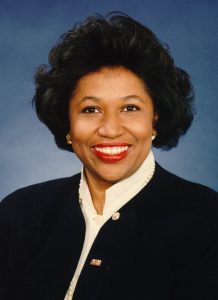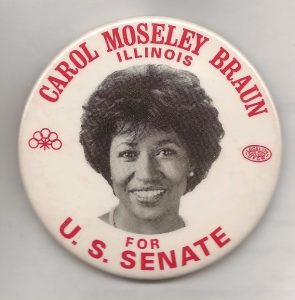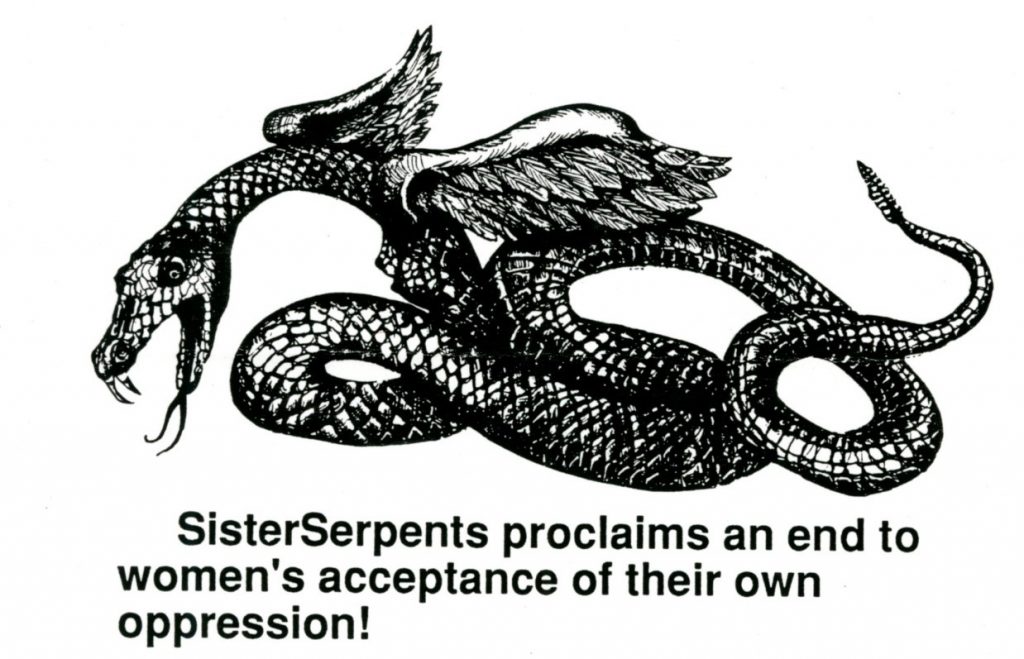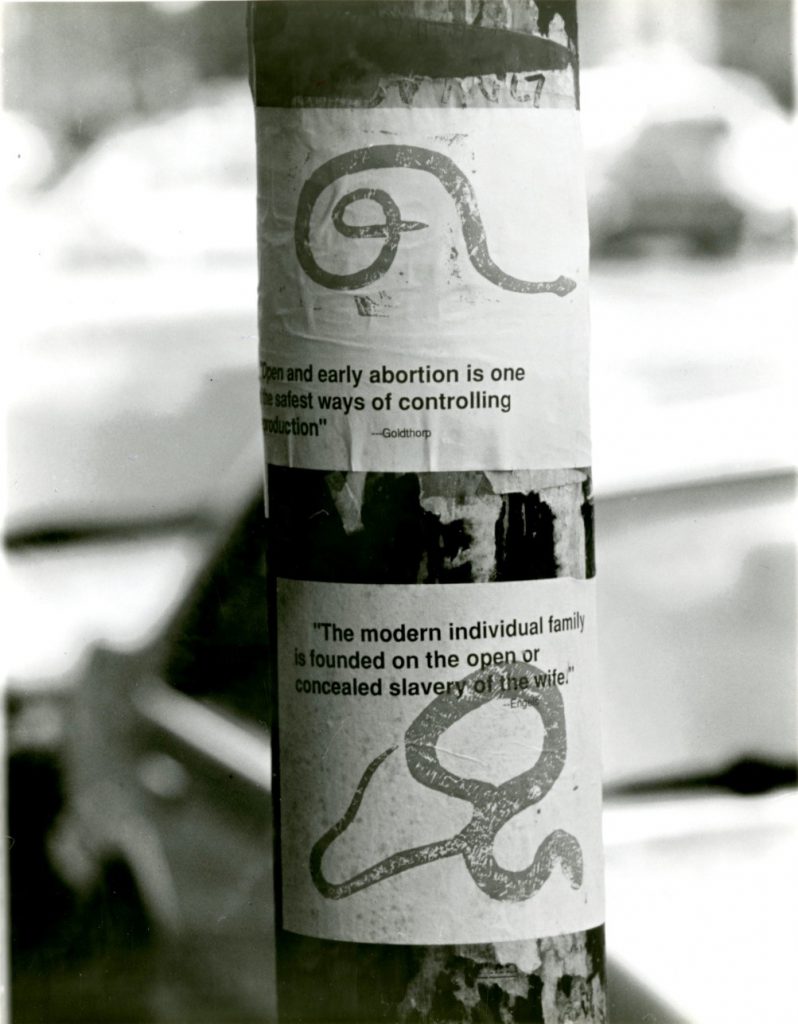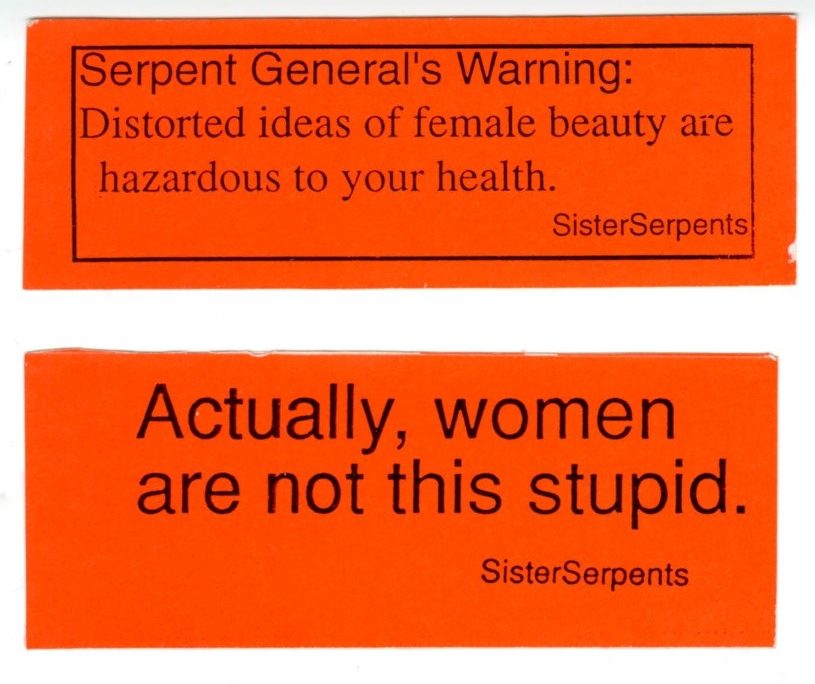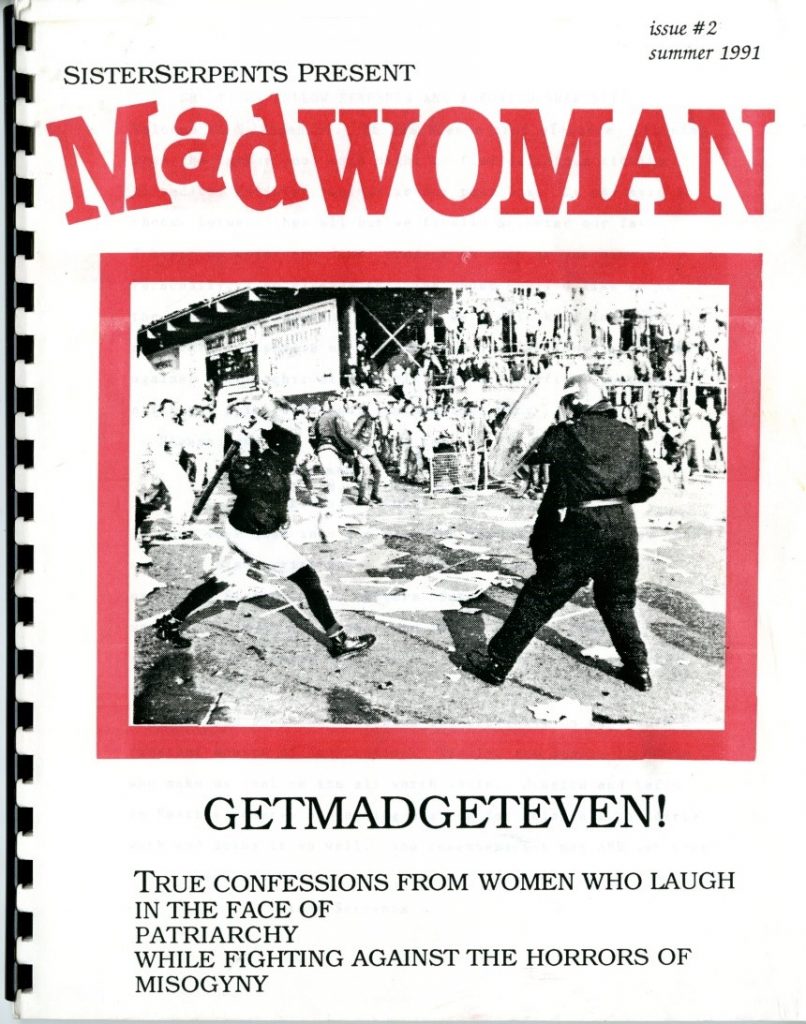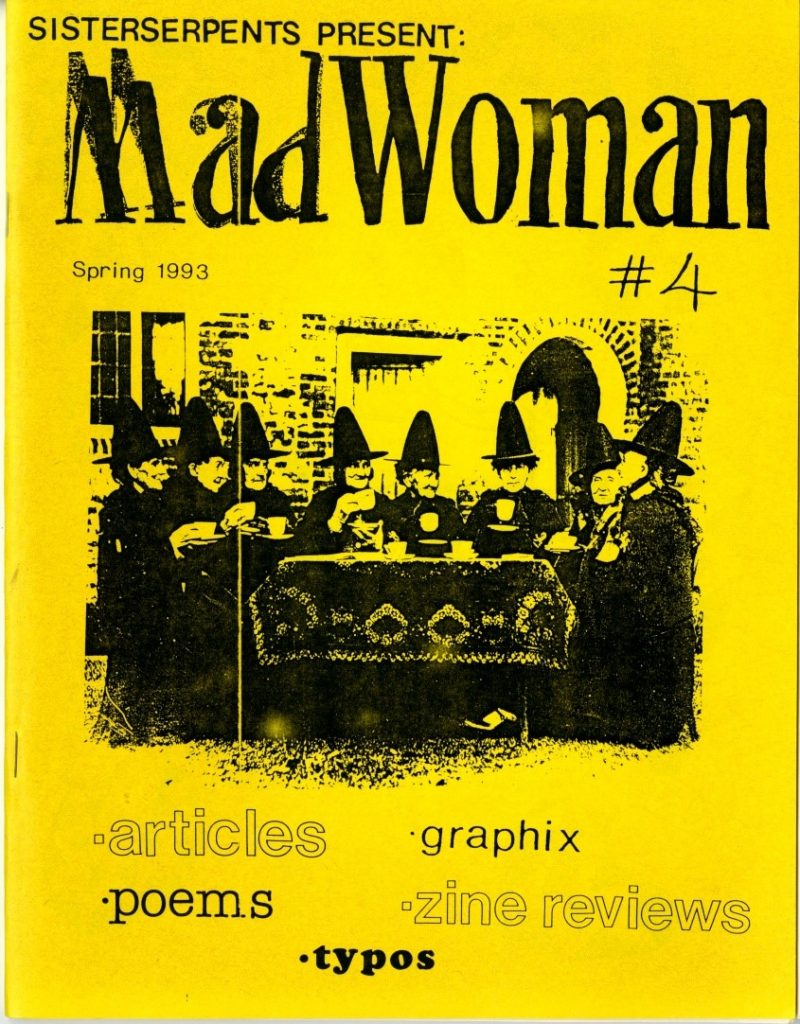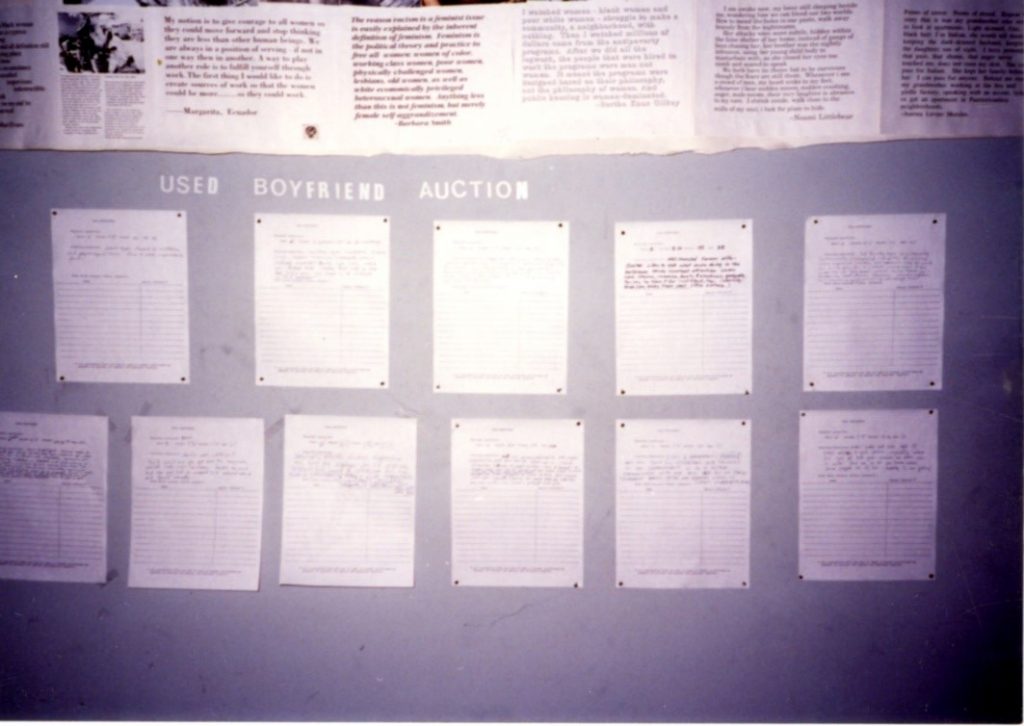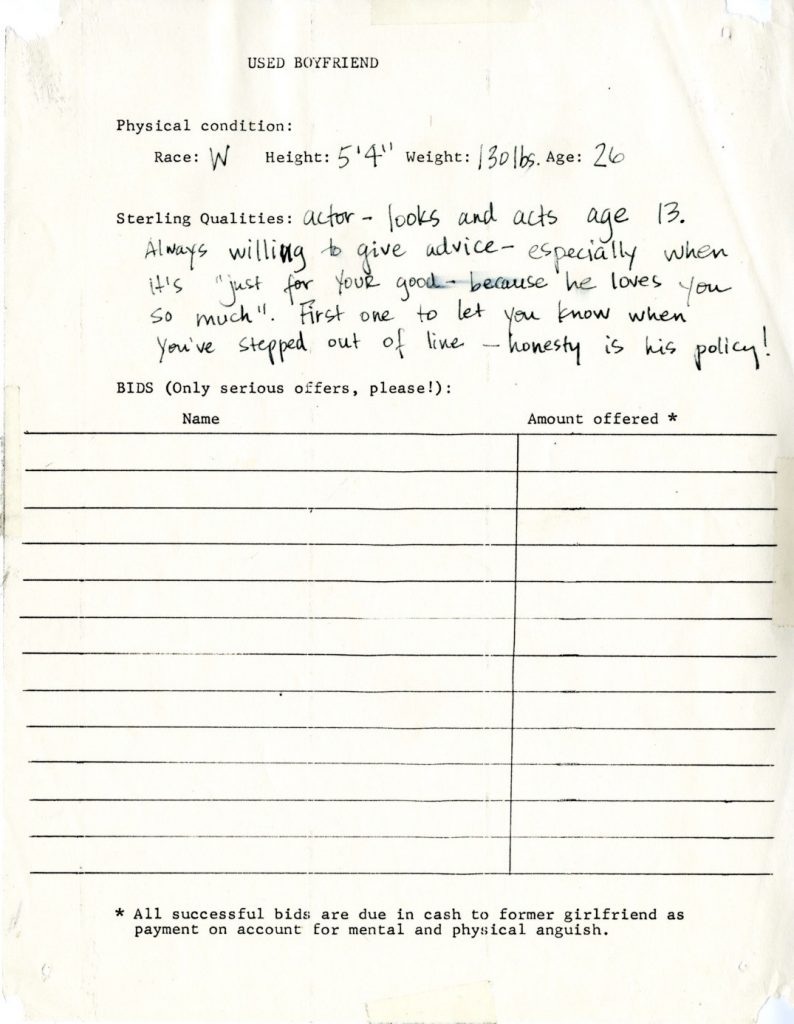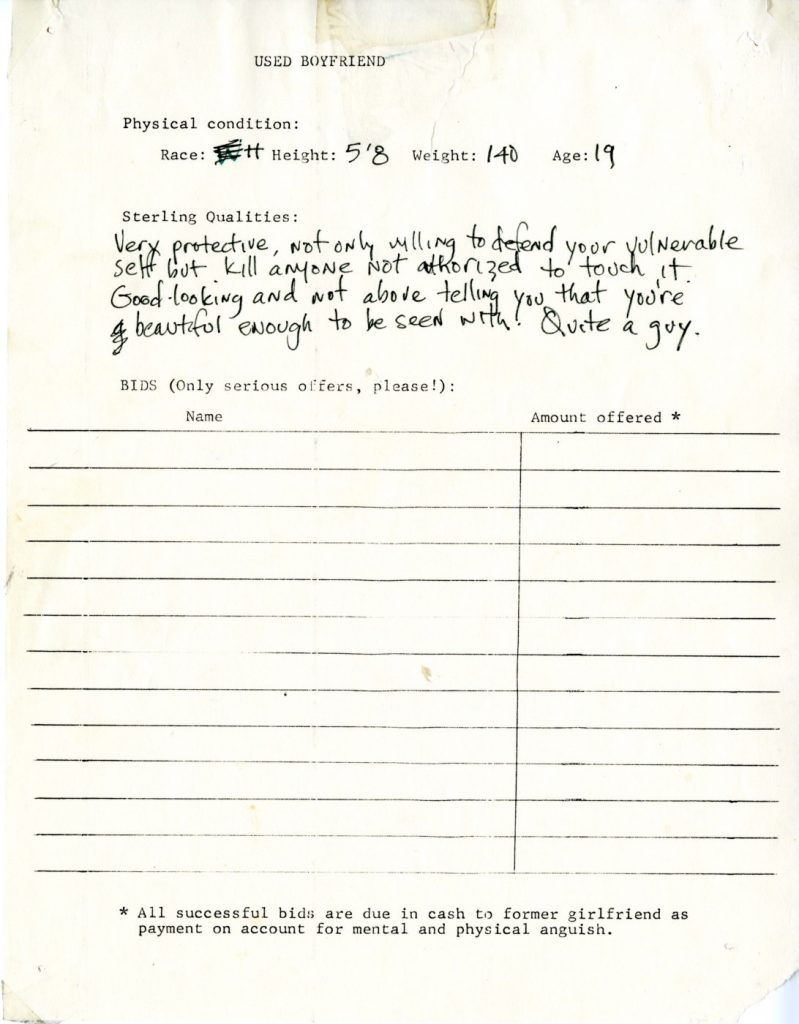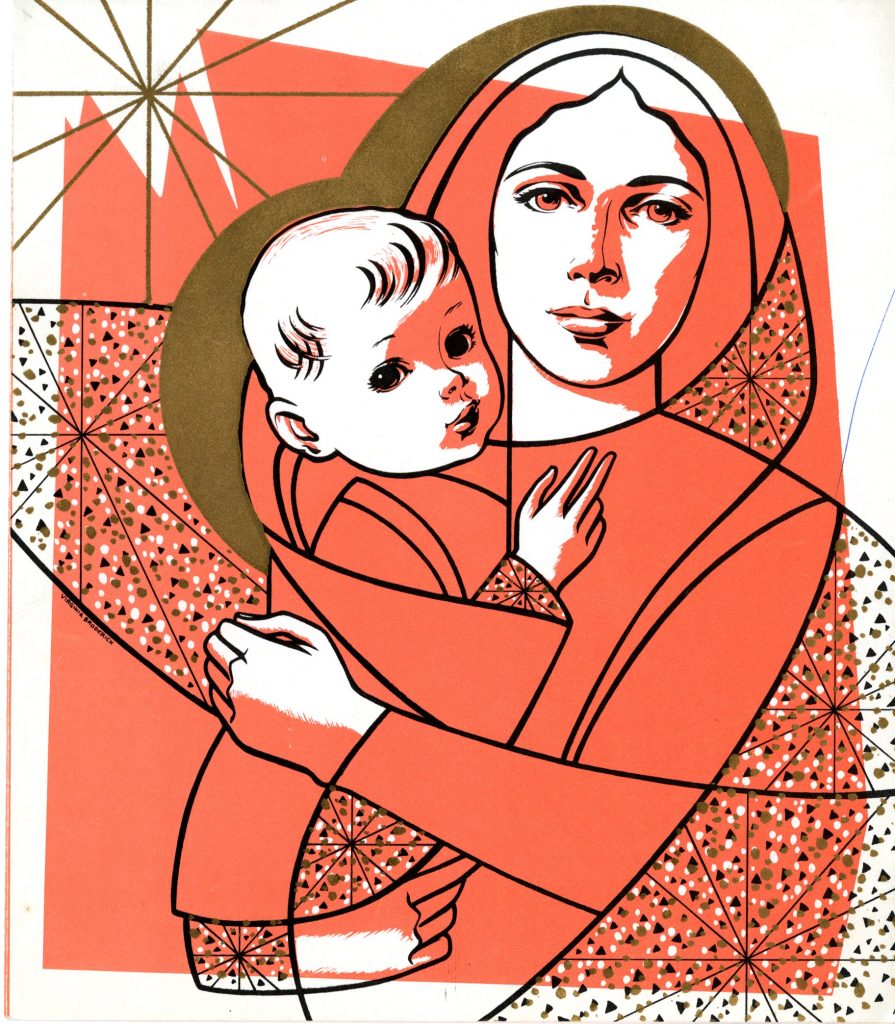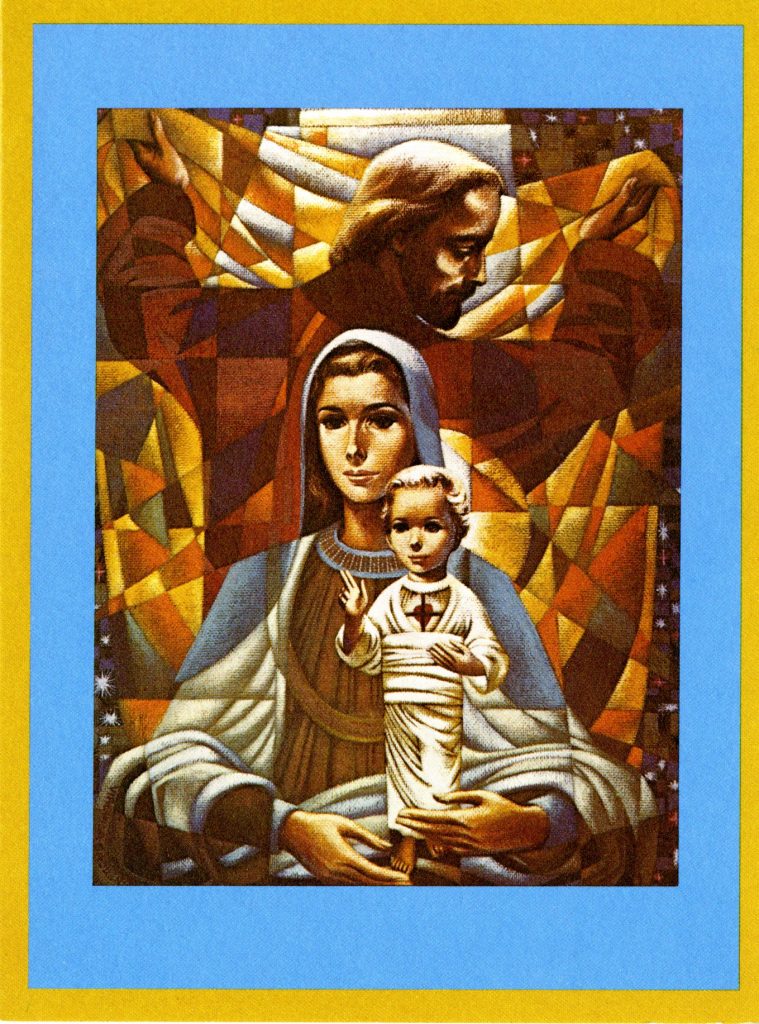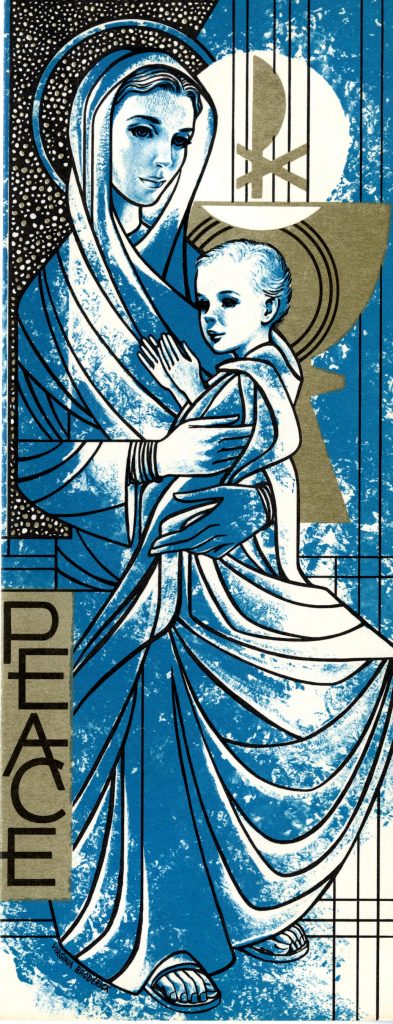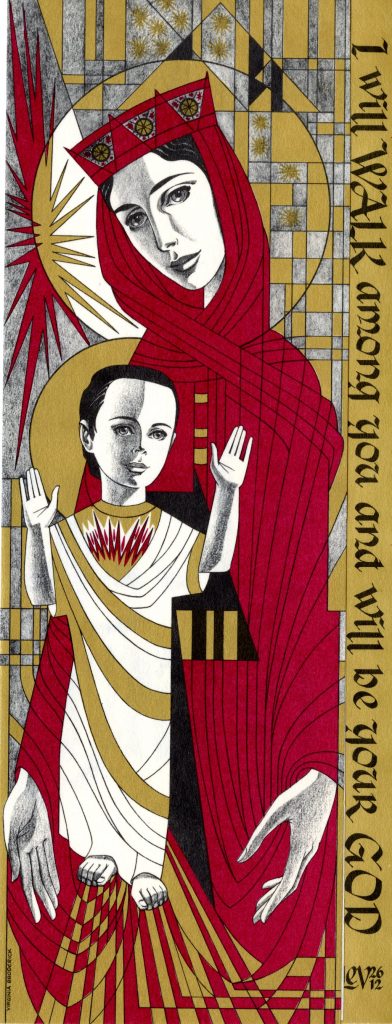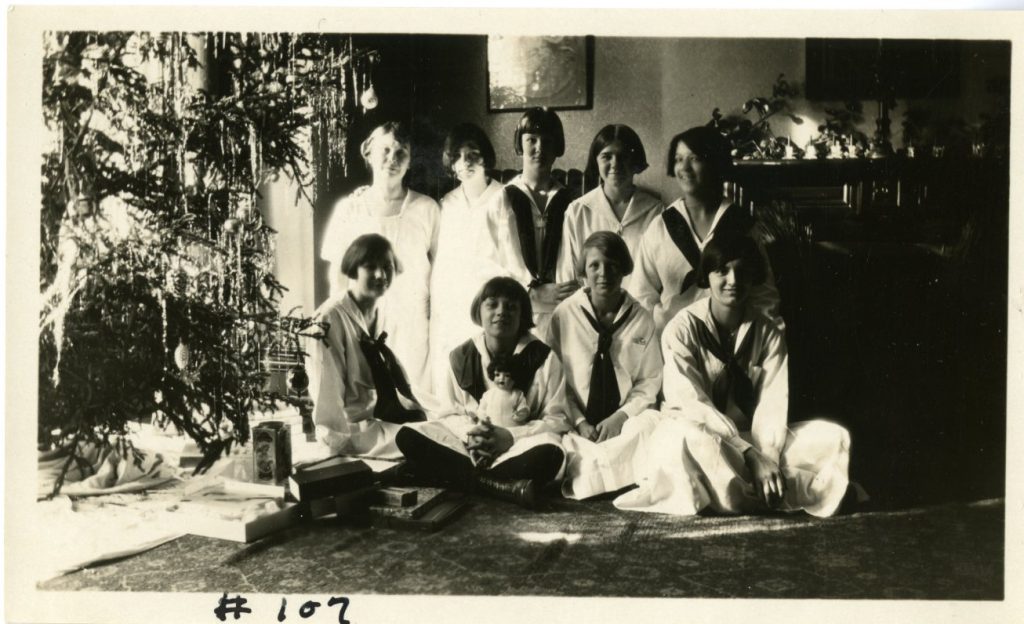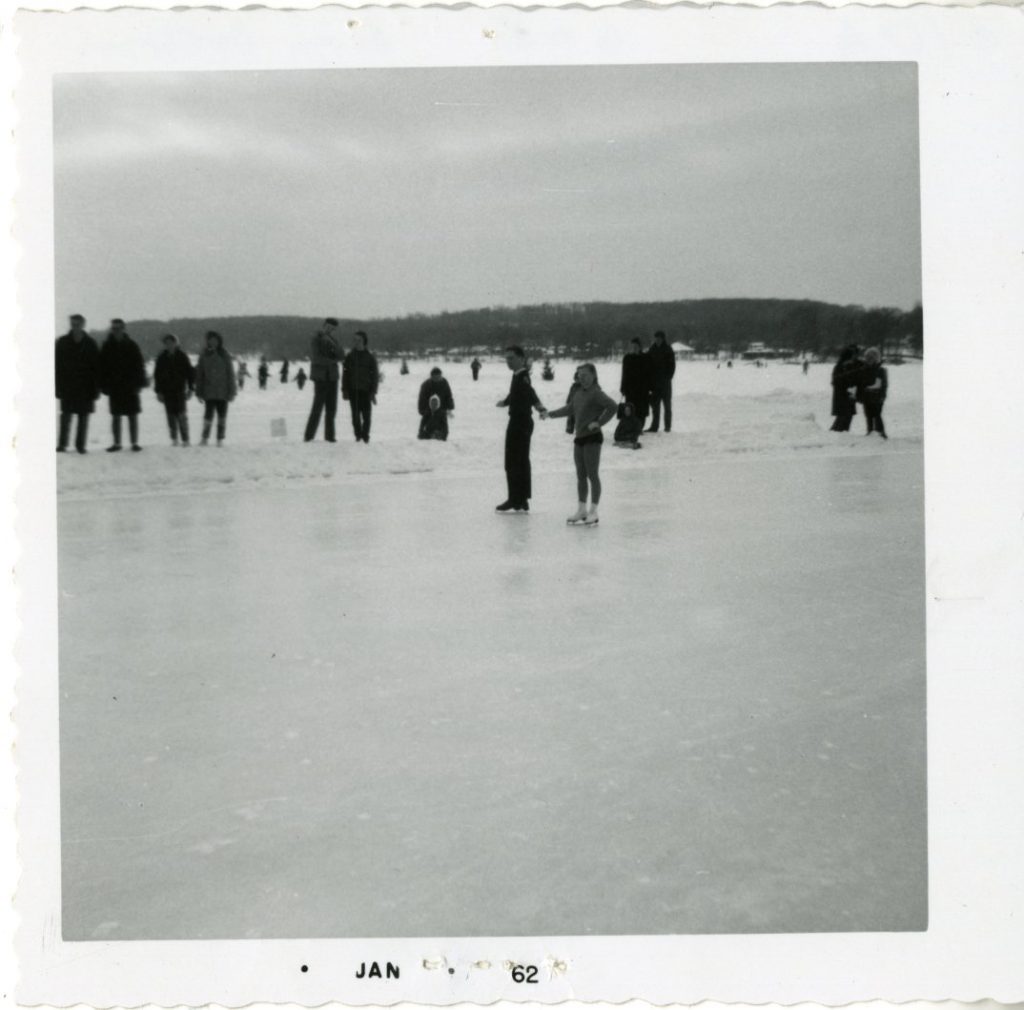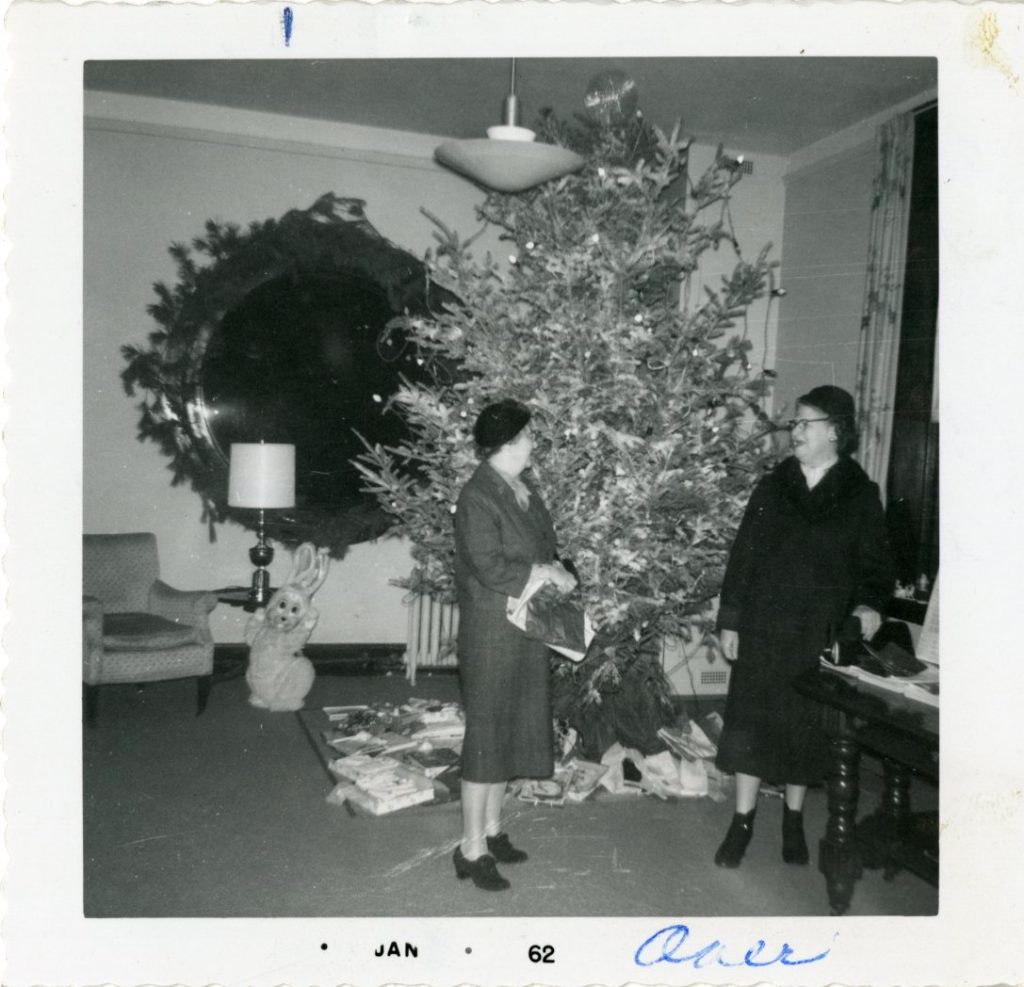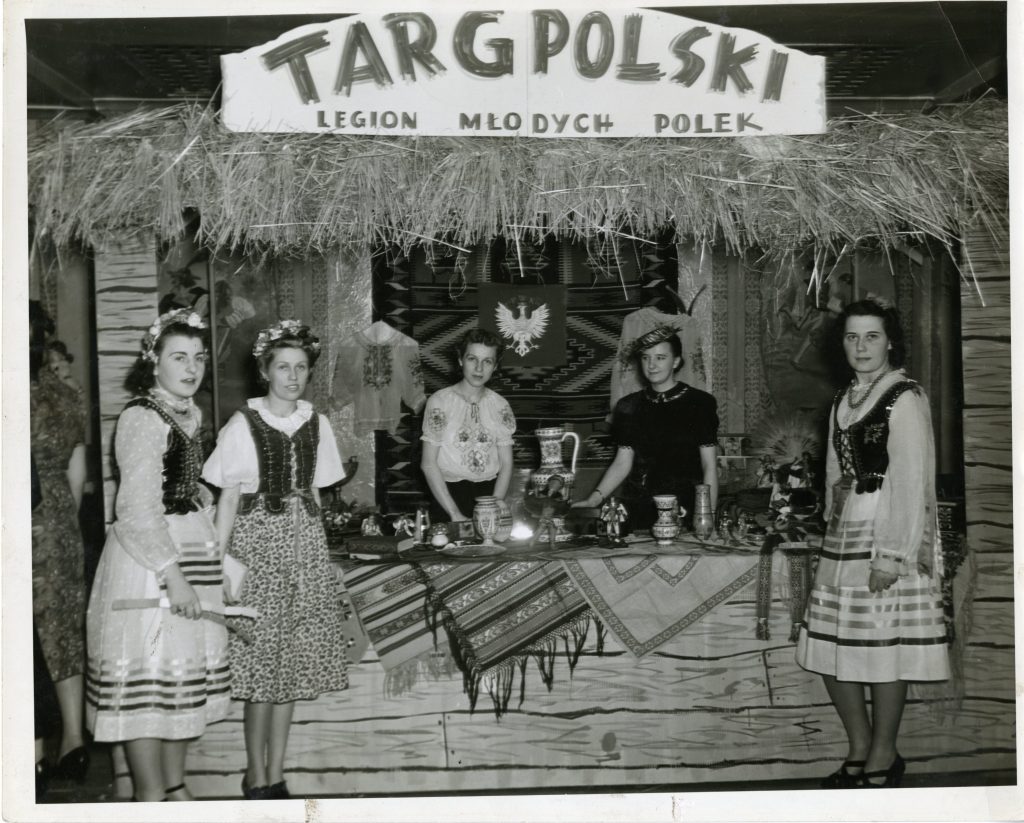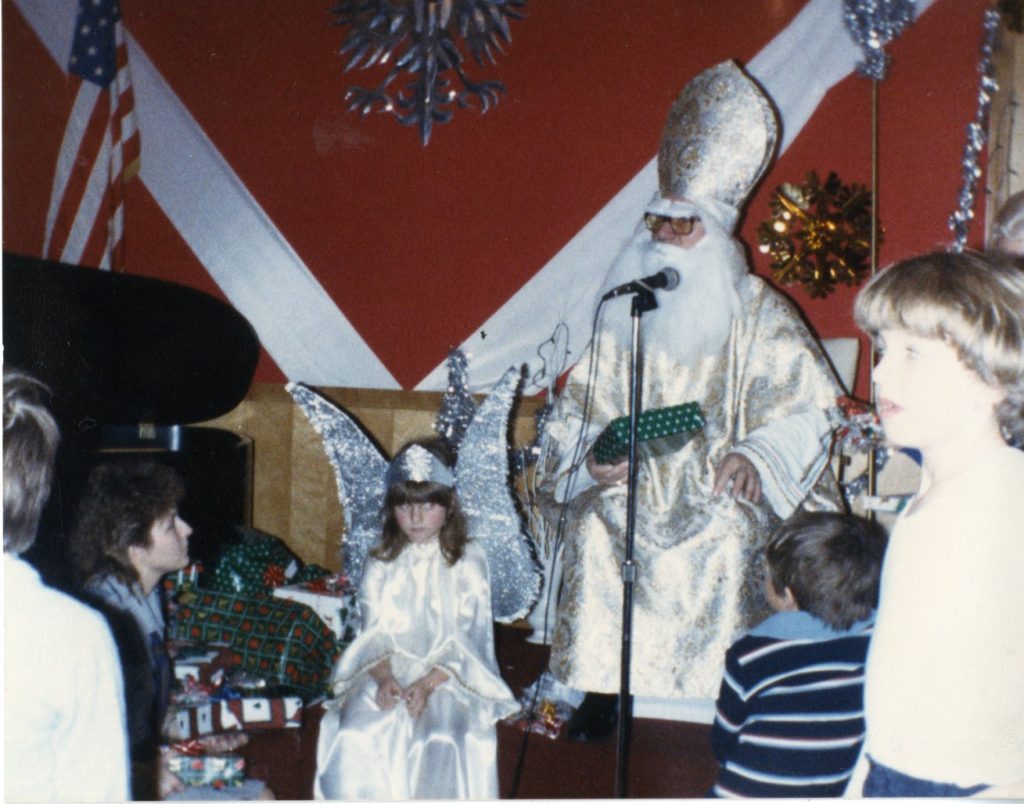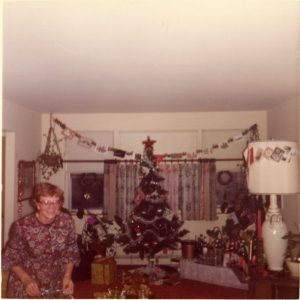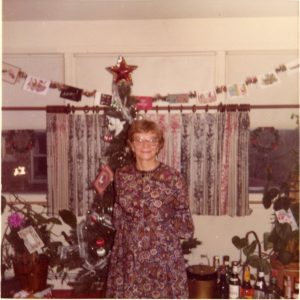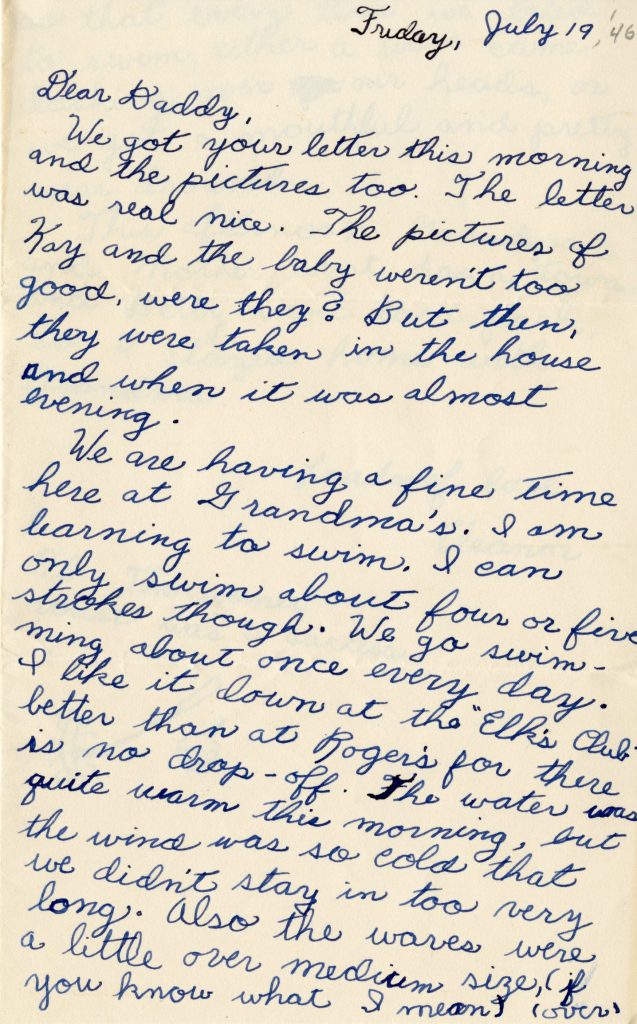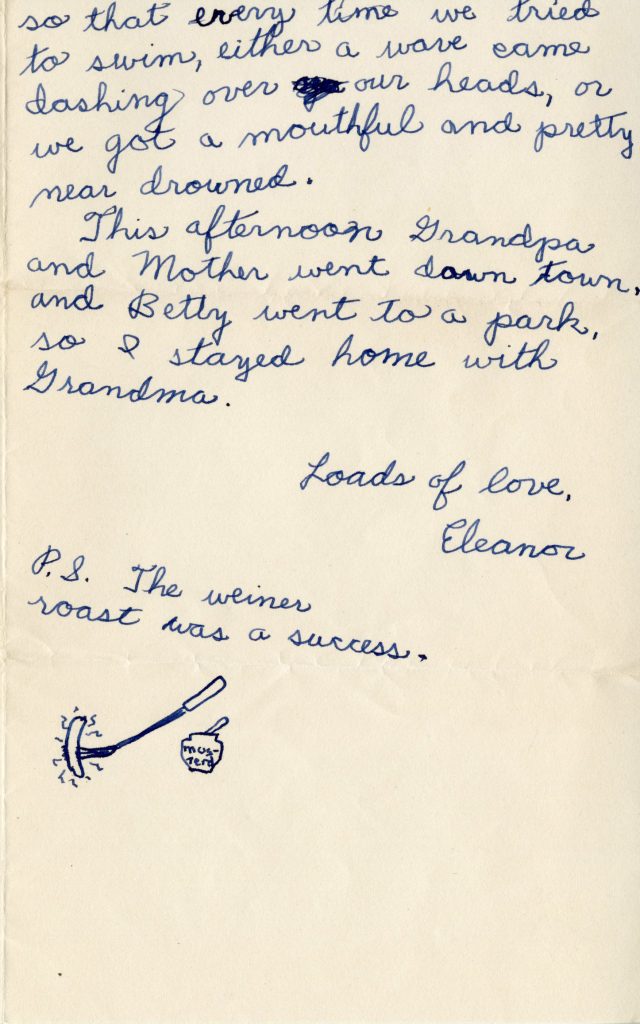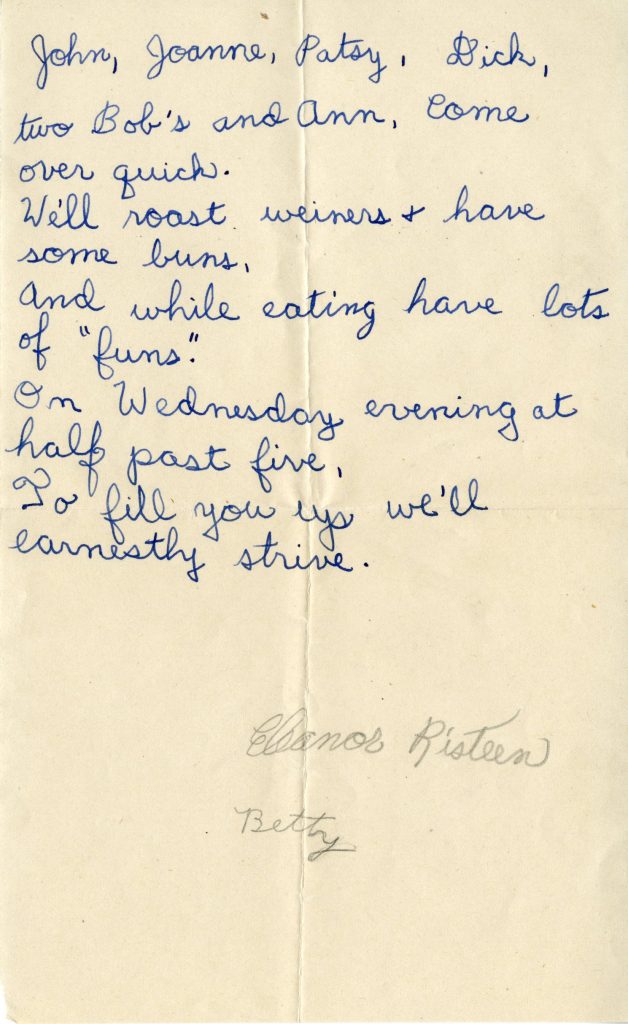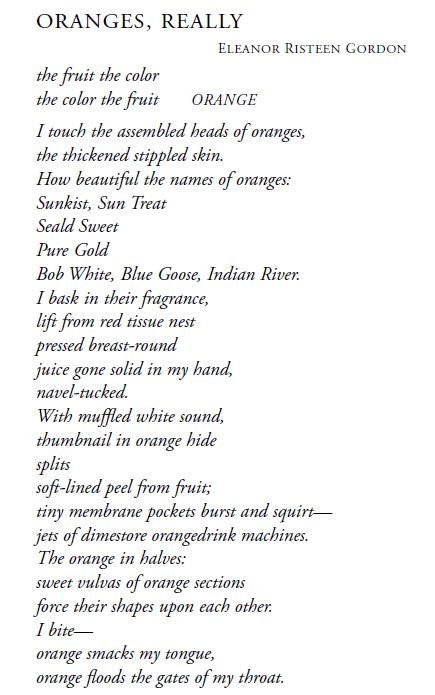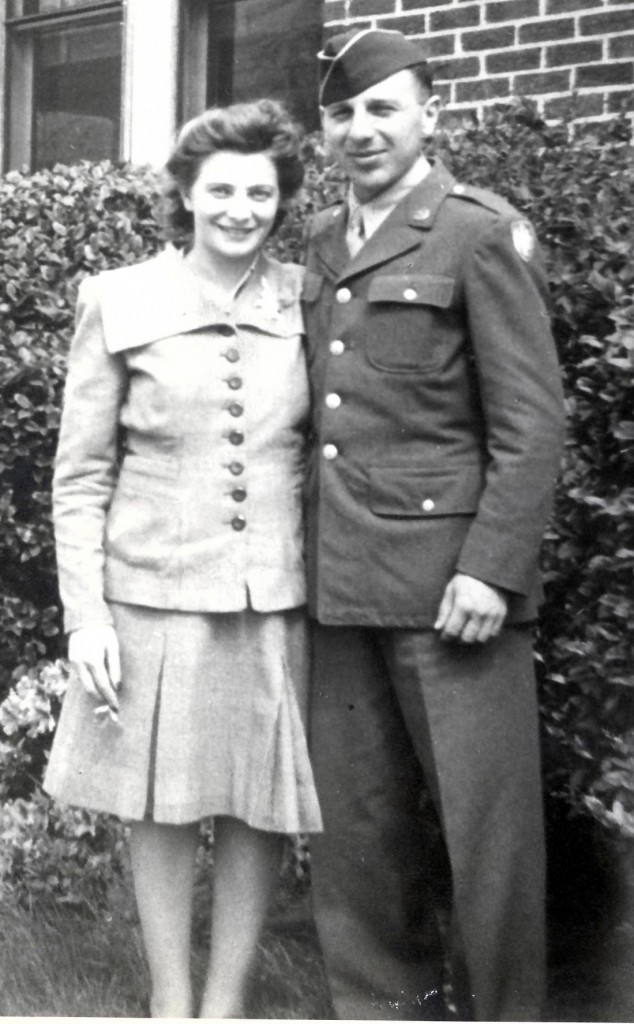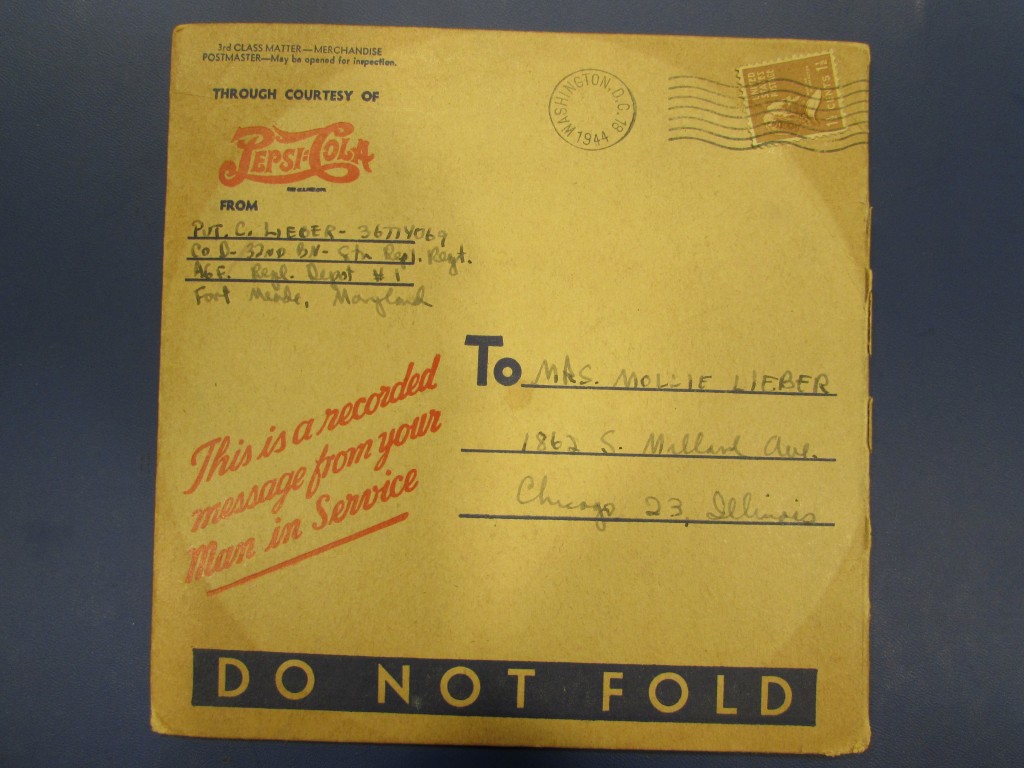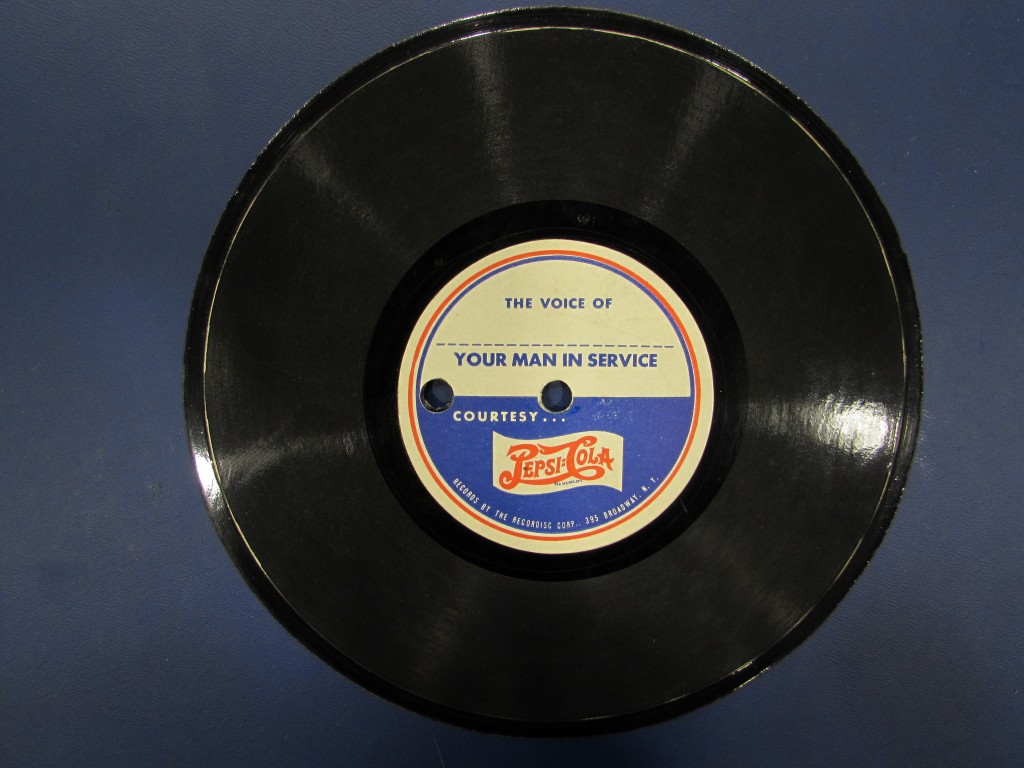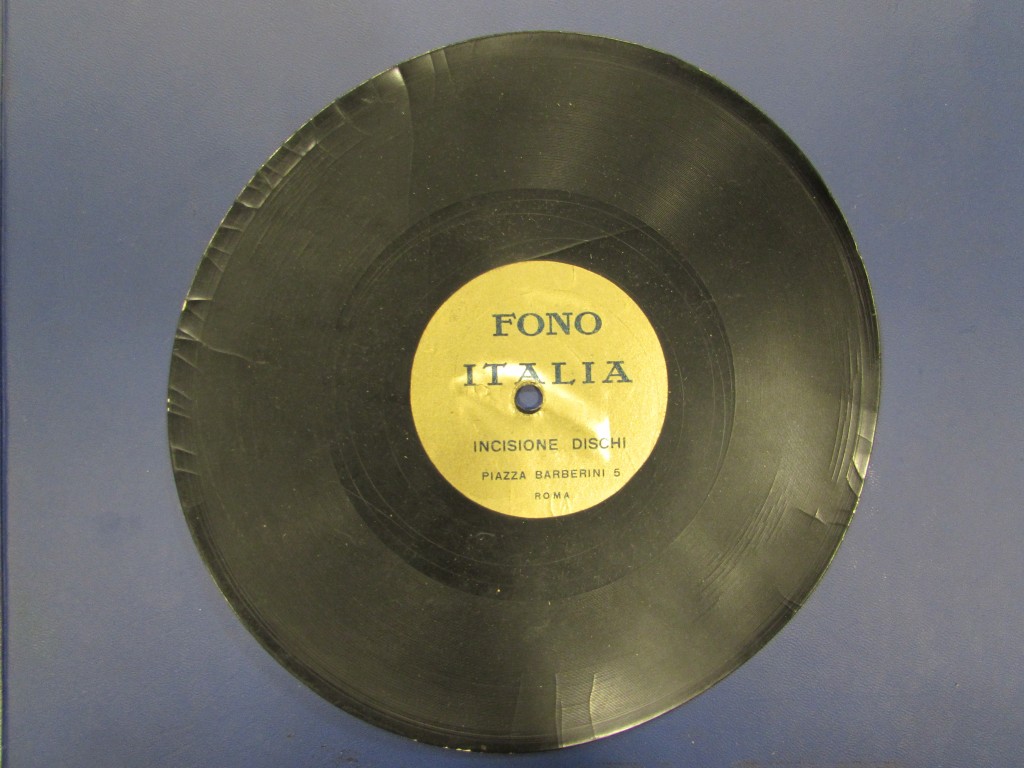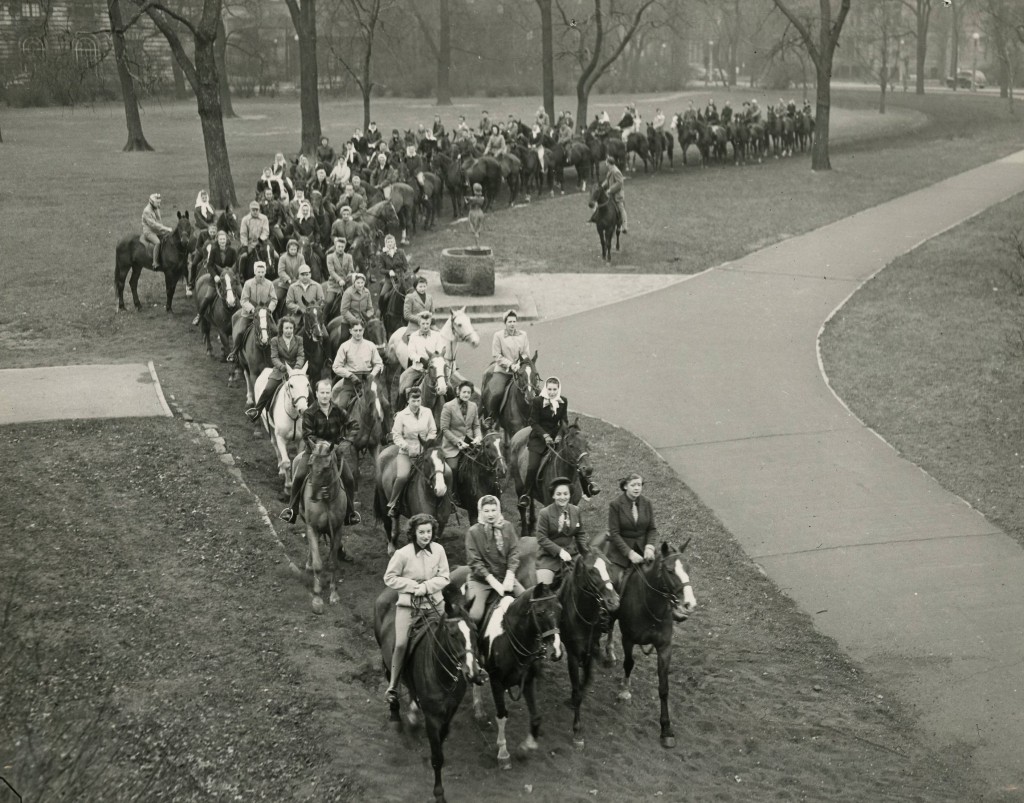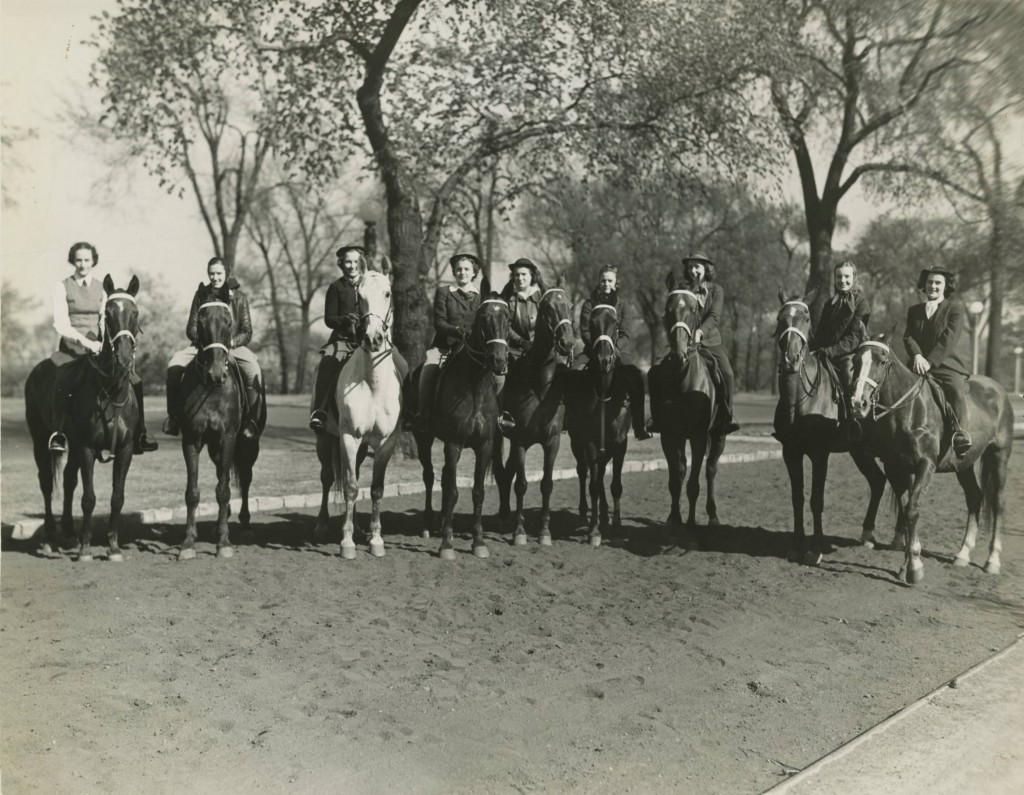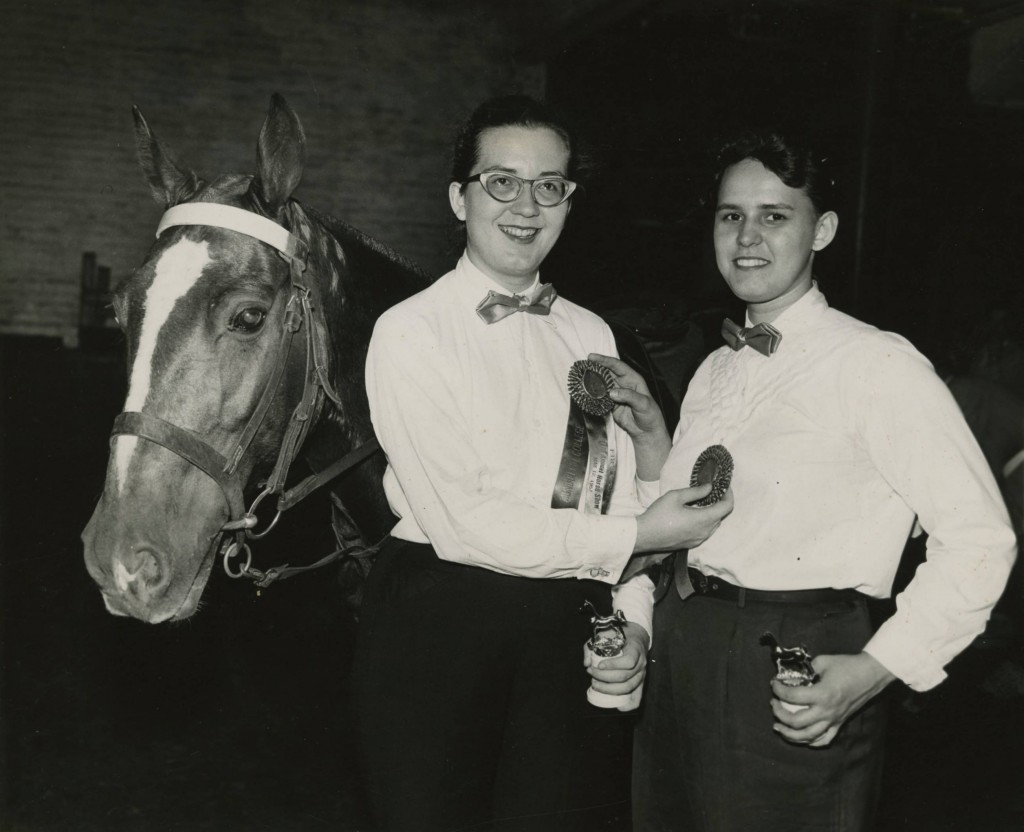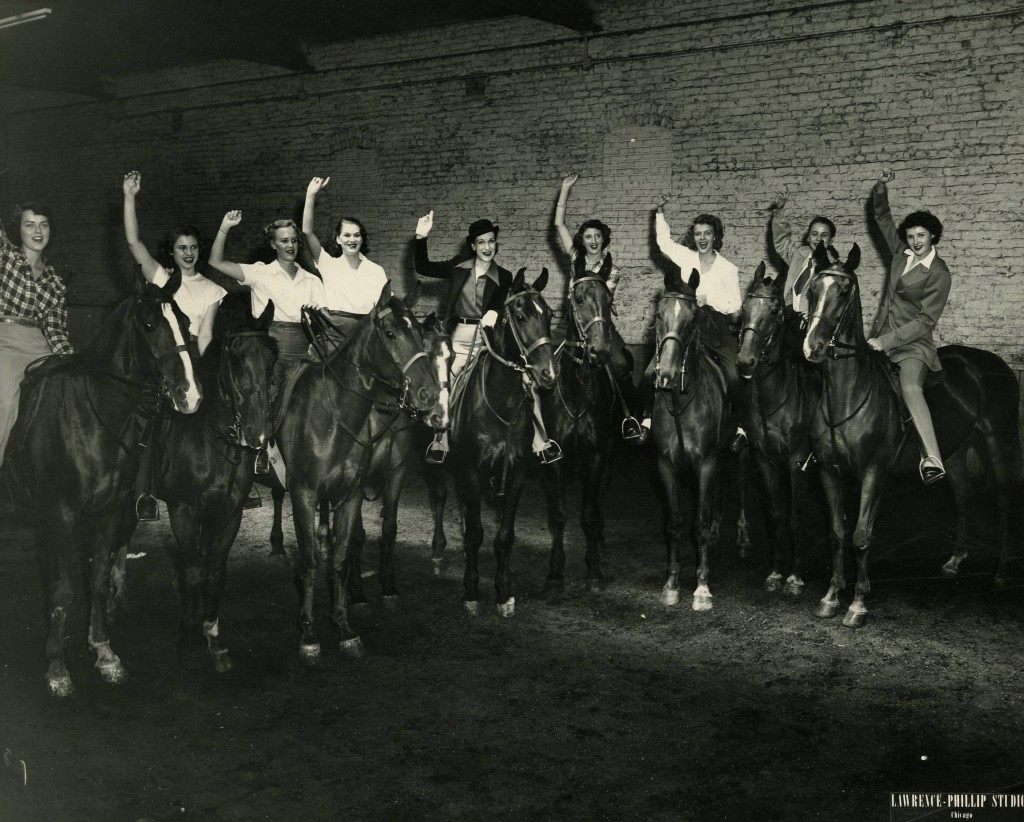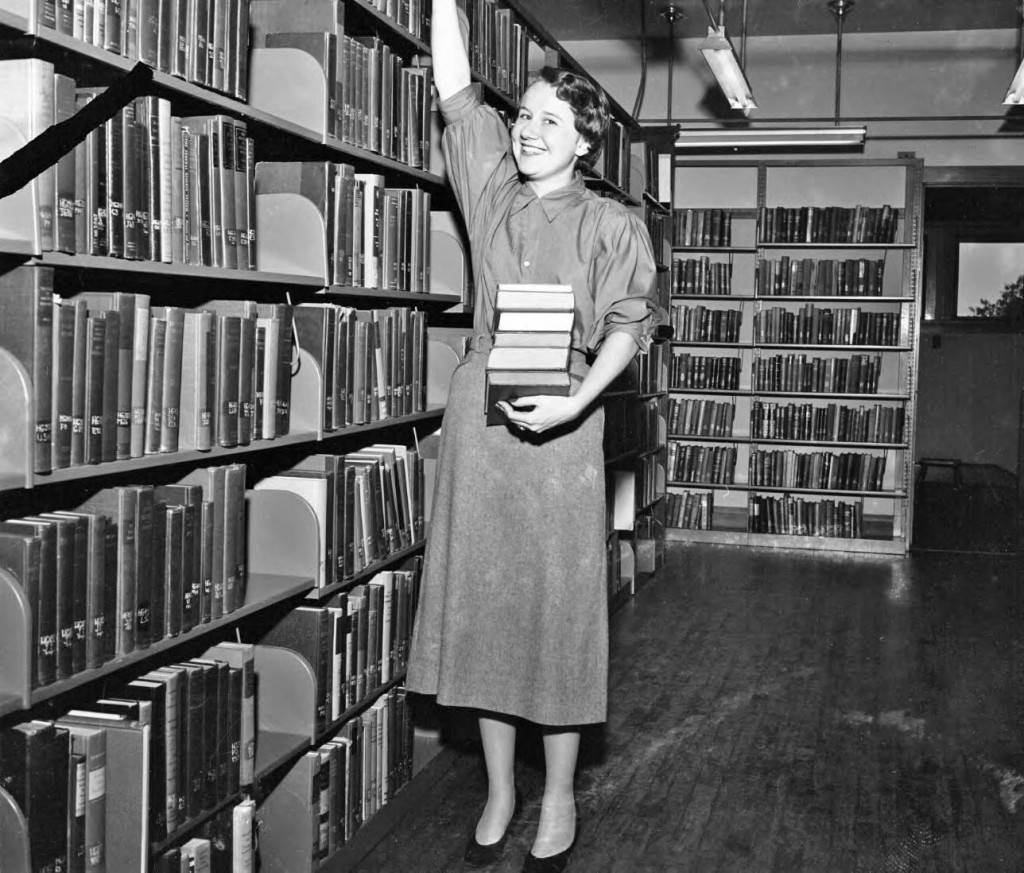
A Mundelein College student picking out books from the library in Piper Hall.
We at the Women and Leadership Archives love summer reading. If you’re like us, see below for a summer reading list inspired by the WLA’s collections!
For the movie-goers… All the King’s Men by Robert Penn Warren. This Pulitzer Prize winning novel tells the story of southern lawyer Willie Stark and his transformation from an idealistic man of the people to a corrupt politician who pays a high price in his pursuit of power. This loosely fictionalized account of Governor Huey Long of Louisiana boasts two movie adaptations. The first, released in 1949, features actress Mercedes McCambridge—whose personal papers are held in the Women and Leadership Archives! In her collection there is an original script of the film, movie stills, and newspaper clippings describing her Oscar-award winning performance as Sadie Burke.
Collections: Mercedes McCambridge Papers
For the time-travelers…Mundelein Voices: The Women’s College Experience edited by Anne M. Harrington and Prudence Moylan.
Founded in 1929 by the Sisters of Charity of the Blessed Virgin Mary, Mundelein College offered its all-female student body a comprehensive and rigorous Catholic liberal arts education. But Mundelein College, despite being run by nuns, had its share of hijinks! Readers can fully immerse themselves into the goings-on of the student body, and see what it was really like to be a Mundelein student, by reading this anthology of essays. I highly recommend the chapter by Joan Frances Crowley, B.V.M on her eight-year tenure as the director (then dean) of residence life. Anyone that has lived in a dorm will appreciate Crowley’s retelling of what it was like to live on-campus during the 1960s.
Collections: Mundelein College Collection
Joan Frances Crowley, B.V.M Papers
For the thrill-seekers…Red Spy Queen: A Biography of Elizabeth Bentley by Kathryn S. Olmstead
Fans of John Le Carré (of Tinker Tailor Solder Spy fame) will love the fascinating life story of Communist Party and Soviet Union defector Elizabeth Bentley—called the “Red Spy Queen” by tabloids and newspapers in the late 1940s. Interestingly enough, Elizabeth Bentley actually worked as a professor of Political Science at Mundelin College from 1949-1950. Imagine having a spy for a teacher!
Collections: Mundelein College Collection
Marjorie Rowbottom Frisbee Papers
For my fellow feminists…Tidal Wave: How Women Changed America at Century’s End by Sara M. Evans
Historian Sara Evans is an authority on the subject of women’s history and their continued journey to equality. Her first book Born for Liberty (1989) is a comprehensive look at the history of women from the sixteenth century to modern times. In Tidal Wave, Evans establishes the essential foundation necessary to introduce readers to the histories of second and third wave feminism and their lasting importance to the present day. The Women and Leadership Archives holds numerous records of artists, academics, women’s groups, and writers that can add additional context to this groundbreaking time in women’s history.
Collections: Feminism in Chicago: Connie Kiosse
Feminist Forum Records
SisterSerpents Records
For the scientists…Headstrong: 52 Women Who Changed Science-and the World by Rachel Swaby
This quick colorful book is for anyone who is curious about women’s contributions to the sciences. Divided into disciplines, this encyclopedic book provides brief entries about notable female doctors, biologists, environmentalists, mathematicians, astronomers, inventors; the list goes on and on! When you’re done, feel free to check out some of the WLA’s collections about women scientists
Collections: Mundelein College Collection—Sister Therese Langerbeck Files
Miram P Cooney, CSC., Papers
Alice Bourke Hayes, PhD., Papers
Katherine DeLage Taft
For the mischief-makers…The Trouble with Angels by Jane Trahey
Originally entitled Life with Mother Superior, this fictionalized memoir by Mundelein Alumnae Jane Trahey describes the shenanigans of two rebellious young women attending a Catholic all girls boarding school. The book was made into a feature film in 1966 starring Hayley Mills as the main troublemaker Mary Clancy and Rosalind Russell as the domineering Mother Superior. If you can get your hands on this book (it’s out of print), you’re in for a light-hearted, nostalgic comedy perfect for laying out pool-side.
Collections: Mundelein College Collection – Jane Trahey Files
For the hopeless romantics…Letters from Home – Kristina McMorris
Sometimes all you want from a good summer read is a juicy historical romance novel. Based in Chicago during World War II, this love story highlights a couple whose only way to communicate with one another is through letters. To add a Shakespearean twist, the main character, Liz Stephens, falls in love with her pen pal while pretending to be someone else! If love letters are your thing, come in and look at the Mollie Leiber West Collection. The WLA holds scores of letters from Mollie to her husband Carl Leiber when they were separated by WWII. Their own tragic love story is not unlike one you would read in an especially romantic novel!
Collections: Mollie Leiber West Papers
Ellen is a Graduate Assistant at the WLA and is in the first year of her M.A in Public History at Loyola University Chicago. Before moving to Chicago, Ellen was a Kindergarten teacher in Louisiana. She enjoys brunch, procedural dramas, and pugs.
Loyola University Chicago’s Women and Leadership Archives Blog is designed to provide a positive environment for the Loyola community to discuss important issues and ideas. Differences of opinion are encouraged. We invite comments in response to posts and ask that you write in a civil and respectful manner. All comments will be screened for tone and content and must include the first and last name of the author and a valid email address. The appearance of comments on the blog does not imply the University’s endorsement or acceptance of views expressed.













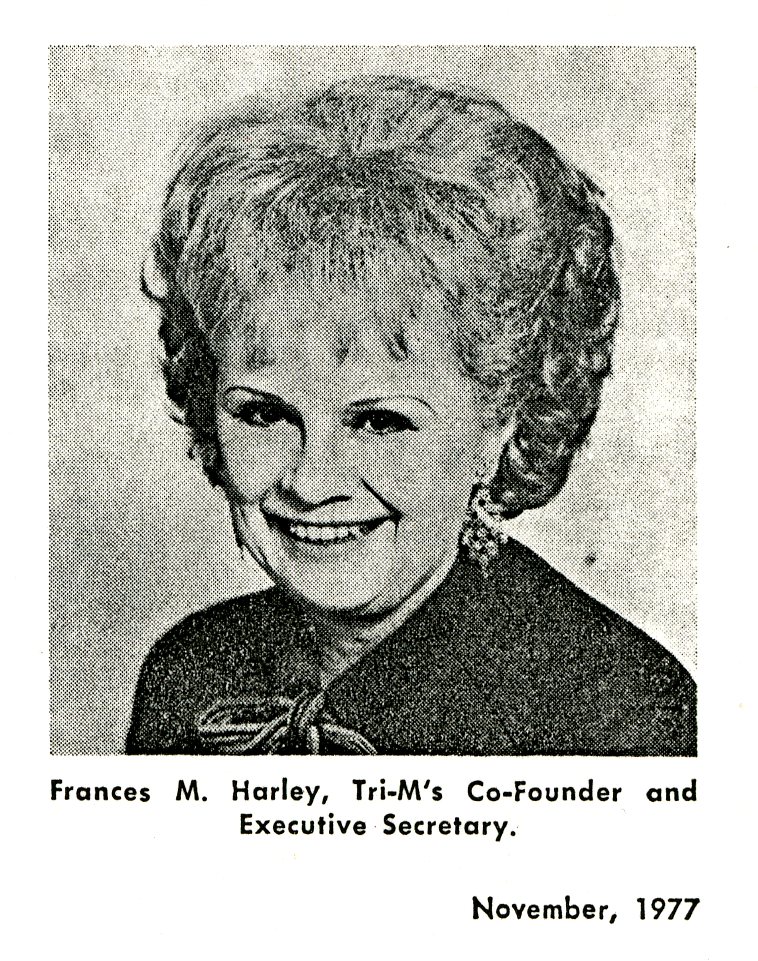

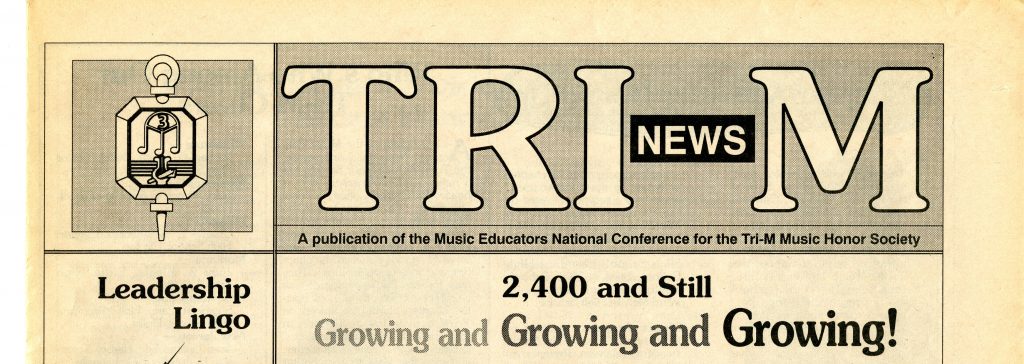
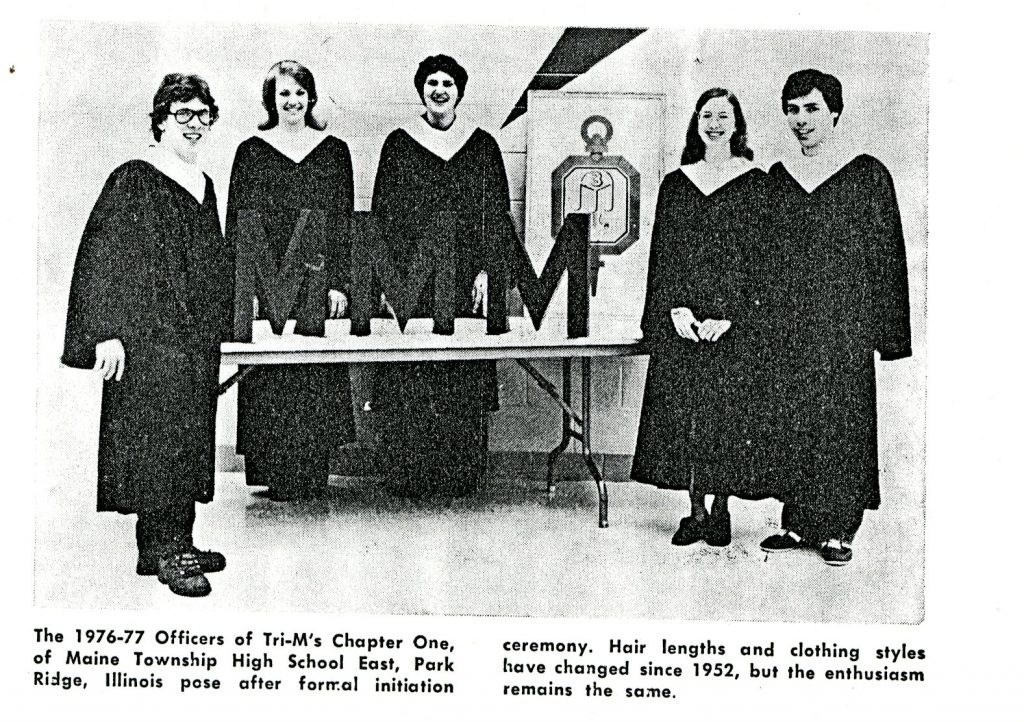

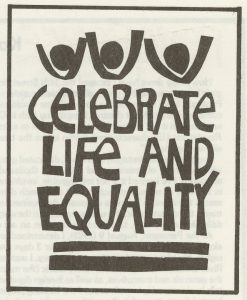 Controversy often follows religious organizations because they can hold contentious views, and the 8th Day Center for Social Justice is one Chicago-area example. Funded by six Catholic orders, the Chicago-based center began in the 1970s as a coalition of six progressive Catholic groups. These men and women viewed the present day as the
Controversy often follows religious organizations because they can hold contentious views, and the 8th Day Center for Social Justice is one Chicago-area example. Funded by six Catholic orders, the Chicago-based center began in the 1970s as a coalition of six progressive Catholic groups. These men and women viewed the present day as the 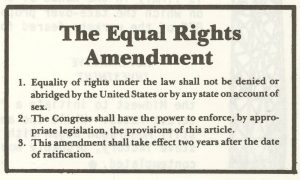 During the 1980s, one of the 8th Day Center’s most visible lobbying efforts revolved around national attempts to add the Equal Rights Amendment (ERA) to the Constitution. The ERA voiced a simple message: “Equality of rights under the law shall not be denied or abridged by the United States or by any state on account of sex.”
During the 1980s, one of the 8th Day Center’s most visible lobbying efforts revolved around national attempts to add the Equal Rights Amendment (ERA) to the Constitution. The ERA voiced a simple message: “Equality of rights under the law shall not be denied or abridged by the United States or by any state on account of sex.”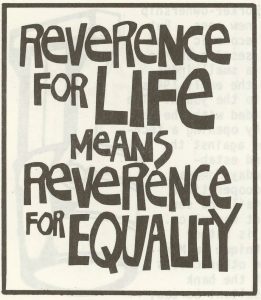 The Catholic Church placed 8th Day in an awkward position: to articulate a position on the ERA, the 8th Day Center needed to adhere to both their social justice purpose and their Catholic tradition. The organization attempted to do that by balancing on a legal argument. In their March 1984 newsletter to their subscribers, 8th Day wrote that Catholics could support the Equal Rights Amendment because the legislation did not legally support abortion. Based on its legislative history, intent, and “scope,” the ERA did not apply to “situations that [derive] from the unique physical characteristics of one sex.” 8th Day went on to explain that “…laws dealing with abortion” at the local or state level “would not be affected one way or another by the ERA because the ERA does not apply to these situations…” They held up a legal argument to their audience of social justice-oriented Catholics.
The Catholic Church placed 8th Day in an awkward position: to articulate a position on the ERA, the 8th Day Center needed to adhere to both their social justice purpose and their Catholic tradition. The organization attempted to do that by balancing on a legal argument. In their March 1984 newsletter to their subscribers, 8th Day wrote that Catholics could support the Equal Rights Amendment because the legislation did not legally support abortion. Based on its legislative history, intent, and “scope,” the ERA did not apply to “situations that [derive] from the unique physical characteristics of one sex.” 8th Day went on to explain that “…laws dealing with abortion” at the local or state level “would not be affected one way or another by the ERA because the ERA does not apply to these situations…” They held up a legal argument to their audience of social justice-oriented Catholics.
